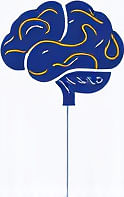Achieving Work-Life Balance with ADHD in Remote Work
 by Thaddeus Blanda
by Thaddeus Blanda
Explore practical strategies for adults with ADHD to maintain balance in remote work settings. This article offers empathetic advice on routines, focus techniques, and self-care to boost productivity and well-being, all while fostering a supportive environment.

Remote work presents unique opportunities for adults with ADHD, but it can also bring specific hurdles that affect daily routines. For many, maintaining boundaries between professional tasks and personal time becomes a key focus. One effective approach is establishing a clear daily schedule to help manage energy levels and reduce overwhelm.
In the morning, starting with a simple routine can set a positive tone. Consider beginning your day with a short walk or a few minutes of stretching to prepare your mind. This helps build a sense of structure, which is essential for those with ADHD. A consistent routine might include prioritizing tasks that require high focus during peak energy periods.
When it comes to handling distractions at home, creating a dedicated workspace is vital. This space should be quiet and free from interruptions, allowing for better concentration. Simple adjustments, like using noise-cancelling headphones, can make a big difference in sustaining attention during work hours.
Productivity tools play an important role in supporting daily efforts. Apps that break tasks into smaller steps can aid in organization and completion. For instance, using a timer for work sessions promotes regular breaks, helping to prevent burnout and maintain motivation.
Strategies for Daily Balance
Building habits that incorporate regular breaks is crucial. Short pauses throughout the day allow time for rest and recharging, which supports overall health. Techniques like the Pomodoro method, where you work for a set period and then take a break, can be adapted to fit individual needs.
Self-care routines are equally important. Ensuring adequate sleep and nutrition forms the foundation for better cognitive function. Activities such as reading or listening to music can provide relaxation and help in winding down after work.
Communication with colleagues offers another layer of support. Being open about your needs, such as preferred meeting times, fosters understanding in a remote team. This openness can lead to more flexible arrangements that accommodate ADHD traits.
Overcoming Common Hurdles
Fatigue often arises from extended screen time, making it hard to switch off at the end of the day. To counter this, set specific end-of-day rituals, like shutting down your computer at a fixed time, to signal the transition to personal time. These rituals help reinforce boundaries and promote mental clarity.
Social connection is another area that might need attention. In remote settings, isolation can exacerbate feelings of disconnection. Scheduling virtual coffee breaks or joining online communities for adults with ADHD provides opportunities for interaction and shared experiences.
When planning your week, consider incorporating variety to keep things engaging. Alternating between different types of tasks can maintain interest and reduce the monotony that sometimes leads to procrastination.
Tools for tracking progress, such as journals or digital planners, offer ways to monitor achievements and adjust plans as needed. Reflecting on what works well encourages continuous improvement and builds confidence.
Fostering Long-Term Well-Being
Over time, developing a personalized system that includes regular check-ins with yourself can sustain balance. This might involve setting weekly goals that are realistic and aligned with your capabilities. Celebrating small wins reinforces positive behaviors and boosts self-esteem.
Incorporating physical activity into your routine supports both physical and mental health. Even light exercises, like yoga or walking, can improve concentration and overall mood.
Seeking professional guidance, such as from a coach or therapist experienced in neurodiversity, provides additional resources. They can offer personalized strategies that address specific challenges.
In closing, finding balance requires patience and experimentation. By implementing these practical hacks, adults with ADHD can create a remote work environment that supports productivity and personal fulfillment.
Remember, everyone’s path is unique, and what works for one person might need adaptation. The goal is to build a sustainable routine that enhances your quality of life.
